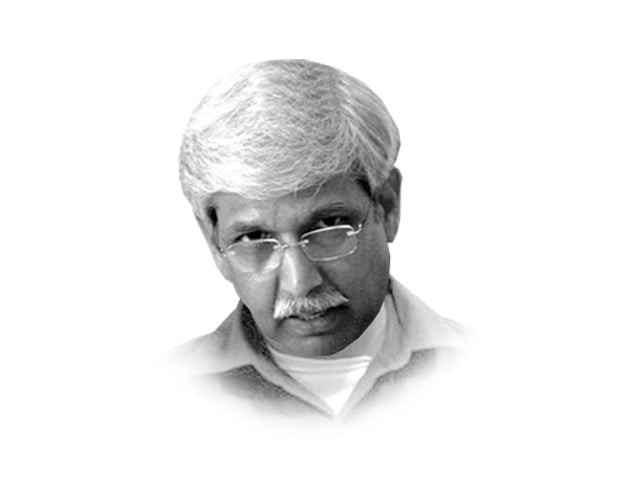Poverty of conception
As a perceived collapse of the Pakistani state looms in India’s bosom, panic diplomacy takes hold.

As a perceived collapse of the Pakistani state looms in India’s bosom, panic diplomacy takes hold. A few developments merit note: there remains a crisis of commodities that has engulfed India, forcing her to borrow from its neighbour (onions in this case). Pakistan has long ventured for help sporadically across the border for her own privations; decreasing space for moderation in the Pakistani societal construct has finally pushed India to realise that while it was fun entangling a beleaguered Pakistan in a senseless blame-game, a capsizing Pakistan will only mean more trouble at India’s doorstep. Without doubt, the fallout of a collapsing state structure or societal fragmentation in Pakistan will be for India to bear, with a probability of graver consequences. Remember Mani Shankar’s invocation of Siamese twins; it never goes away and is unlikely to, however hard one may try.
Two parallel developments within the Indian monolith accrue. One; a December 18, 2010 confession by Swami Aseemanand on Really Simple Syndication, speaking of complicity in the Samjhota Express blast, as well as other major blasts at Muslim sites within India, is made public and a court process begins to take shape, after four years of dithering on a persistent Pakistani refrain to bring to book the Samjhota perpetrators. Two; the Indian establishment, till date the real block in letting the dialogue between the two countries resume, is amenable to re-initiating the dialogue; never mind the subsequent qualifications of terrorist infrastructure in Pakistan being the core Indian interest.
What worries India no end is their obsession with Kashmir and a resident fear that Pakistan will hinge the talks around this core issue. It is instructive to review the timeline along which Pakistan began reiterating Kashmir as their sine qua non for any meaningful dialogue to ensue. The present Pakistani government began their tenure with an open-ended offer to India to improve relations. Post-Mumbai, the efforts were even keener and one hoped that after the Indian government was firmly reinstituted in May 2009, the political hangover will give way to a more reassured Indian response to mend relations with a neighbour tied by a common geography. Not to be. After being consistently thwarted, Pakistan took recourse in scorn of the jaded lover. It posited with bringing back to eminence Kashmir, against a persistent Indian insistence to malign Pakistan with Mumbai and the larger terrorism strain.
In anticipation of a dialogue that may just restart, India has initiated an internal political effort to reconcile the warring groups in Kashmir. Not bad, since this is what should have begun decades back. There will remain latent traps, though, to disable the process by the overly-nationalist, religious Indian fold. One may also not make too much of the recent Indian announcement to cut forces by 25 per cent in Kashmir till it happens, but it may yet be another plank to woo the disparate Kashmiri groups into believing that the Indian state may just mean business this time around.
So when Thimphu happens, will India have a plausible ploy to Pakistan’s dialogue strategy to seize negotiating space on Kashmir? Joining the dots in India’s strategic design leads one to assume that it will. The bigger question though is: Is it already too late, and has the available diplomatic space been traded with senseless brinksmanship? One hopes not. The religious right, though, in both countries may just have the last laugh.
Published in The Express Tribune, January 19th, 2011.















COMMENTS
Comments are moderated and generally will be posted if they are on-topic and not abusive.
For more information, please see our Comments FAQ